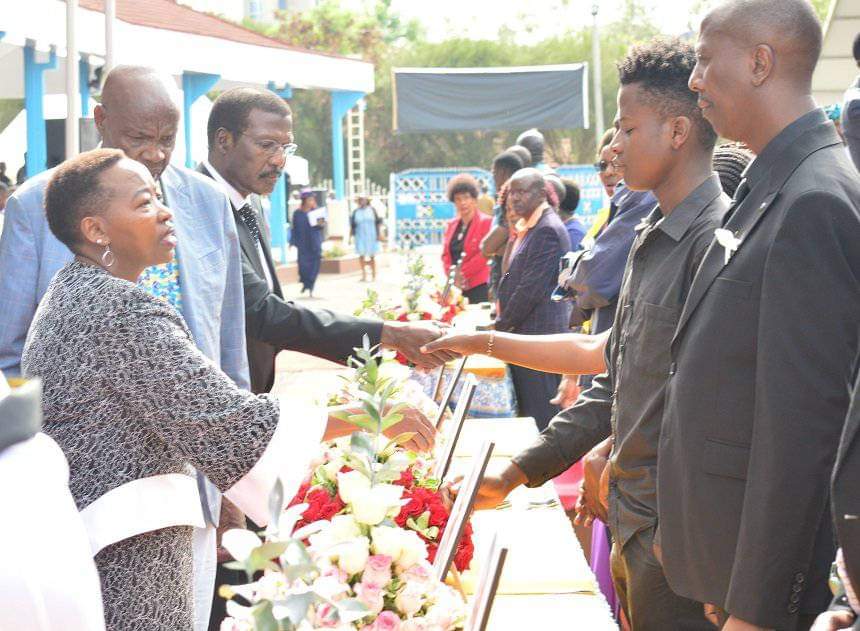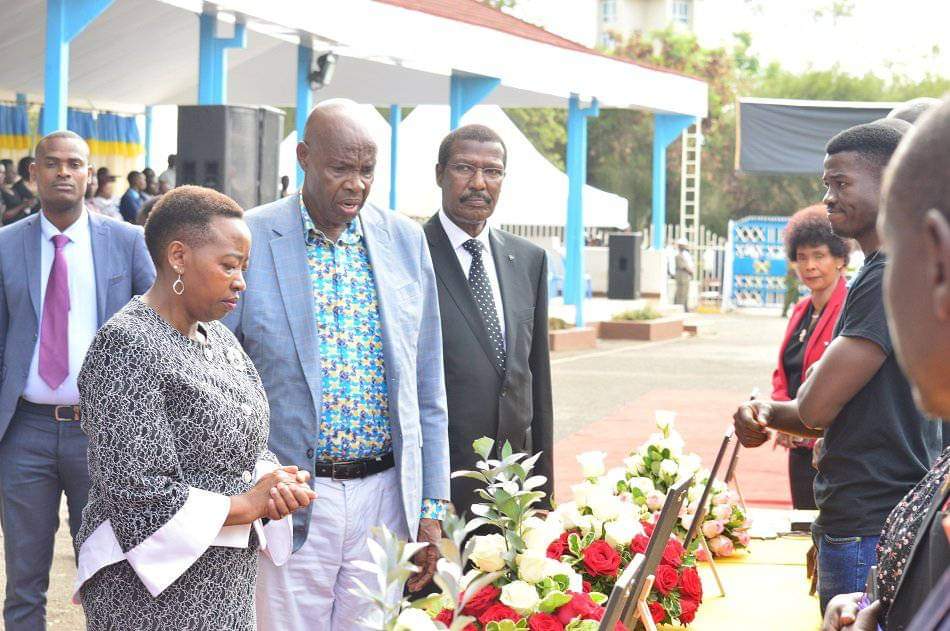In a somber moment of grief and loss, Deputy President William Ruto’s donation of two million shillings for the families of 11 Kenyatta University students who tragically lost their lives in an accident speaks volumes about both the compassion of the individual and the broader societal response to tragedy.

This act of generosity not only provides financial relief to the bereaved families but also reflects the importance of empathy and solidarity in times of adversity. In this essay, we will delve deeper into the significance of Ruto’s donation, exploring its implications on individual philanthropy, political image, and the collective consciousness of the nation.
The Humanitarian Aspect:
At its core, Ruto’s donation embodies the essence of humanitarianism. By offering financial assistance to the families affected by the tragic loss of their loved ones, he extends a helping hand during their darkest hour. This gesture goes beyond mere sympathy, demonstrating a tangible commitment to alleviating the suffering of those in need.
In a society often marked by socioeconomic disparities, such acts of charity play a crucial role in fostering a sense of solidarity and shared responsibility towards the welfare of all citizens.
Political Implications:
From a political standpoint, Ruto’s donation carries significant implications for his public image and reputation. In a landscape where politicians are often scrutinized for their actions, especially in the wake of tragedy, Ruto’s decision to contribute his own funds reflects a sense of accountability and empathy that resonates with the electorate.
By prioritizing the needs of the affected families over political posturing, he showcases a level of integrity and compassion that can enhance his standing among voters, particularly in the lead-up to elections.
Addressing Social Injustice:
The tragedy that befell the 11 Kenyatta University students underscores broader issues of road safety and systemic inequalities. In a country where road accidents claim numerous lives each year, particularly among the youth, Ruto’s donation serves as a reminder of the urgent need for improved infrastructure and stringent enforcement of traffic regulations.
Beyond the immediate financial assistance, efforts must be made to address the root causes of such accidents, including inadequate road maintenance, reckless driving, and insufficient safety measures.
Inspiring Philanthropy:
Ruto’s donation sets a precedent for other individuals, both within the political sphere and beyond, to contribute to charitable causes. By leading by example, he encourages a culture of philanthropy and altruism where those who are privileged recognize their duty to support the less fortunate. This ripple effect can have far-reaching consequences, fostering a society where compassion and generosity are valued as essential pillars of communal well-being.
Healing and Closure:
In times of tragedy, gestures of support and solidarity can play a crucial role in the healing process for those directly impacted. Ruto’s donation not only provides practical assistance to the families of the deceased but also serves as a symbolic gesture of unity and solidarity.
In a moment marked by profound grief and loss, knowing that others are willing to stand beside them can offer solace and comfort to the grieving families as they navigate the difficult path toward healing and closure.
National Unity and Solidarity:
Beyond individual acts of philanthropy, Ruto’s donation has broader implications for national unity and solidarity. In a country often divided along political, ethnic, and socioeconomic lines, moments of tragedy have the potential to unite people across these divides in a shared sense of grief and compassion.
By rallying behind the affected families, regardless of political affiliation or background, Kenyans can demonstrate their capacity for empathy and collective action in the face of adversity.
Deputy President William Ruto’s donation of two million shillings for the families of 11 Kenyatta University students who perished in an accident embodies the virtues of compassion, empathy, and solidarity. Beyond its immediate impact, this act of generosity carries symbolic significance, highlighting the importance of individual philanthropy, political accountability, and societal cohesion.
As Kenya mourns the loss of these young lives, Ruto’s gesture serves as a beacon of hope and unity, inspiring others to join in the effort to support those in need and foster a more compassionate and resilient society.
In a poignant display of empathy and solidarity, Deputy President William Ruto’s recent donation of two million shillings for the families of 11 Kenyatta University students tragically killed in an accident resonates deeply with the humanitarian spirit. This act of generosity transcends mere financial assistance, symbolizing a commitment to alleviating the suffering of those in need.
Ruto’s donation carries political implications, signaling a departure from traditional posturing towards a more genuine engagement with societal issues. By prioritizing the needs of the bereaved families over political agendas, Ruto showcases integrity and compassion, potentially bolstering his public image and credibility among voters.


The tragedy underscores broader systemic issues such as road safety and social inequality. Ruto’s gesture serves as a reminder of the urgent need for improved infrastructure and stricter enforcement of traffic regulations to prevent future accidents. Beyond financial aid, concerted efforts are required to address the root causes of such tragedies and promote lasting change.
Moreover, Ruto’s donation sets a precedent for philanthropy, inspiring others to contribute to charitable causes and fostering a culture of compassion and solidarity. By leading by example, he encourages individuals, both within and outside the political sphere, to recognize their responsibility towards the less fortunate and contribute to the common good.
In times of grief, gestures of support and solidarity can facilitate healing and closure for the affected families. Ruto’s donation not only provides practical assistance but also symbolizes unity and compassion, offering solace to those grappling with loss. Through collective action and empathy, Kenyans can navigate the path towards healing and resilience in the face of adversity.
Furthermore, Ruto’s donation transcends political divides, uniting Kenyans in a shared sense of grief and compassion. In a society often fragmented along political, ethnic, and socioeconomic lines, moments of tragedy have the potential to bridge these divisions, reaffirming our common humanity and collective responsibility towards one another.
Deputy President William Ruto’s donation exemplifies the power of empathy, solidarity, and compassionate leadership in times of crisis. Beyond its immediate impact, this gesture serves as a catalyst for social change, inspiring individuals to come together in support of those in need and fostering a more inclusive and resilient society.
